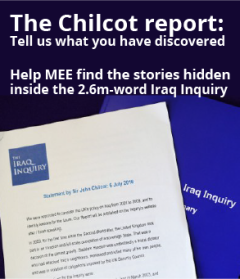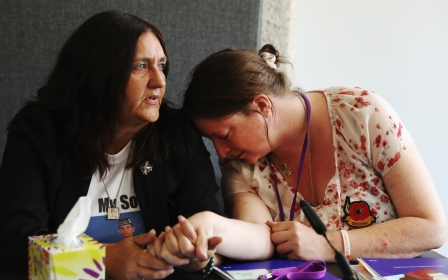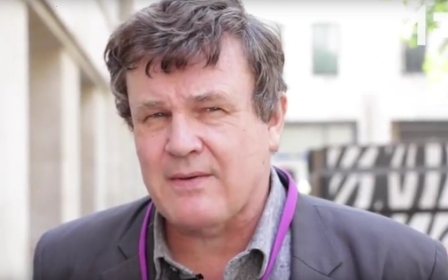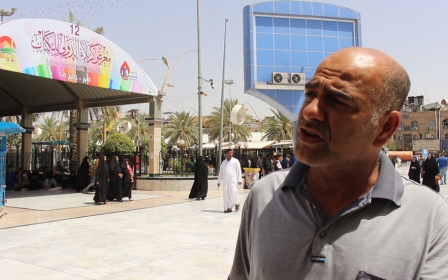'With you, whatever': Secret memo reveals Blair's support for war
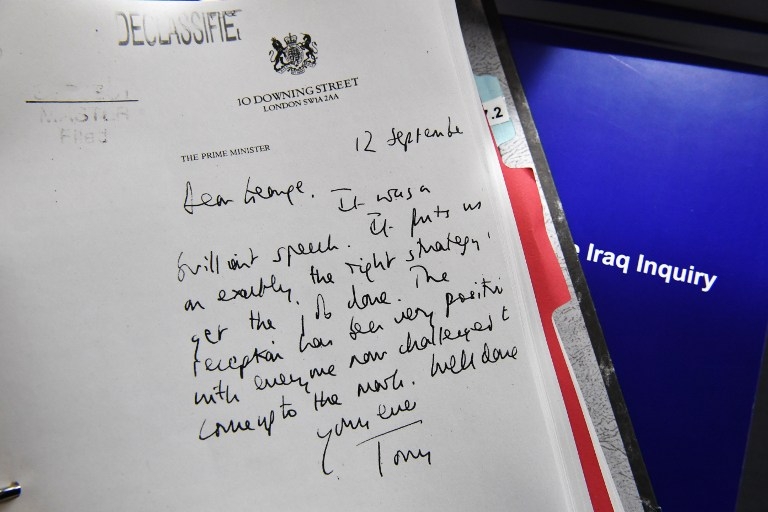
If you started reading the entire Chilcot report today, as a full time job, you would emerge, blurry-eyed and potentially none the wiser, sometime in late August.
But among the thousands of pages, equivalent to reading War and Peace nearly five times, released on Tuesday, one memo in particular - former British Prime Minister Tony Blair's 28 July 2002 declassified memo to US President George W Bush - has already garnered considerable attention.
The memo, sent eight months before the 2003 invasion of Iraq, raises questions about when exactly Blair committed the UK to the war in Iraq - and also to what extent his relationship with Bush influenced that decision.
The memos were among the many factors that held up the release of the report, commissioned in 2009 and originally expected to report within 12 months.
According to Chilcot the note, marked "Secret Personal," was originally seen only by members of Blair's Downing Street staff.
A copy was given to then-Foreign Secretary Jack Straw after it was sent, but not to Defence Secretary Geoff Hoon, both of whom "should certainly have been given an opportunity to comment on the draft in advance," Chilcot found.
"I will be with you, whatever," the six-page memo, titled 'Note on Iraq' began.
Blair wrote that "getting rid of Saddam is the right thing to do". But then, after asking whether the US wanted or needed a coalition, he quickly laid out what he described as "unintended consequences" if the US removed Saddam Hussein only with the UK's support - and without an international coalition.
"Suppose it got militarily tricky. Suppose Iraq suffered unexpected civilian casualties. Suppose the Arab street finally erupted," he wrote. Suppose, he added, Saddam let off weapons of mass destruction or Iraqis, ambivalent about being invaded, fought back.
"If we win quickly," he argued, "everyone will be our friend. If we don't and they [other countries] haven't been bound in beforehand, recriminations will start fast."
"None of these things might happen. But they might, singly or in combination... so I'm keen on a coalition, not necessarily military but politically."
In the rest of the memo, Blair laid out how the US and the UK could "bring opinion round" among Arab and European countries and pull together a coalition.
Blair suggested that the UK and the US should push for the return of UN weapons inspectors to "encapsulate our casus belli in some defining way".
He then painted a picture of Iraqi President Saddam Hussein stuck in a Catch 22 situation: "If he did say yes, we continue the build-up and we send teams over and the moment he obstructs, we say: he's back to his games. That's it. In any event, he probably would screw it up and not meet the deadline, and if he came forward after the deadline, we would just refuse to deal."
Blair also wrote:
- That he believed the Americans were overly optimistic that Arab and European countries would rally to its side to back military action: "The trouble is, everyone says: they will support action, but they add a rider and the rider is not always sufficiently heard or spoken."
- That Arab leaders could be swayed to join a coalition if it meant the Palestinian-Israeli peace process was prioritised: "My judgment is [the peace process] is essential and whatever the Arabs say at one level, at another this is in the very soul of their attitudes."
- Of Arab leaders, he also said: "We need a dedicated effort to woo the Arab world, to offer the hardliners a very hard-headed partnership or put them on the 'axis of evil' list. But we shouldn't leave this to chance or their own (bad) decision-making."
- Public opinion across the pond, including in the UK, could be a problem: "Opinion in the US is quite simply on a different planet from opinion here, in Europe or in the Arab world... at the moment, oddly, our best ally might be Russia!"
- He laid out two military options - "running start" and "generated start" - arguing that a generated start, which would see a build-up of coalition forces in the area, would signal "serious intent to the region and help to pull people towards us; and demoralise the Iraqis".
"But the crucial issue," he wrote, "is not when, but how".
This article is available in French on Middle East Eye French edition.
New MEE newsletter: Jerusalem Dispatch
Sign up to get the latest insights and analysis on Israel-Palestine, alongside Turkey Unpacked and other MEE newsletters
Middle East Eye delivers independent and unrivalled coverage and analysis of the Middle East, North Africa and beyond. To learn more about republishing this content and the associated fees, please fill out this form. More about MEE can be found here.


